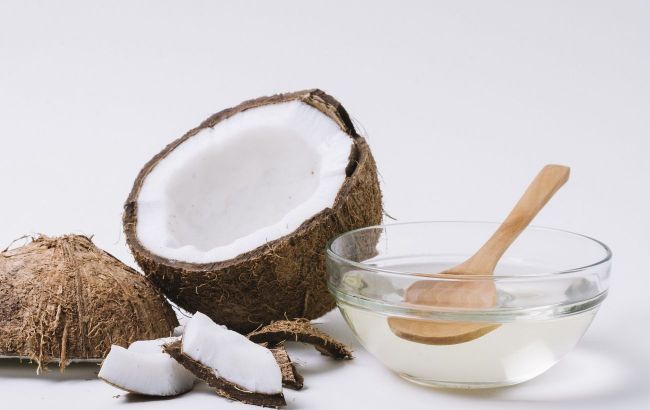Coconut oil: Superfood or silent health risk?
 Photo: Is coconut oil safe for health (Freepik)
Photo: Is coconut oil safe for health (Freepik)
Is the popular coconut oil as dangerous to your health as some experts claim, or is it just another wellness myth?
RBC-Ukraine explores whether coconut oil is something to fear or use with caution.
The argument against: high in saturated fat
The main concern with coconut oil lies in its composition. It consists of 80–90% saturated fats. For comparison, butter contains about 63%, and beef fat around 50%. Both the World Health Organization (WHO) and the American Heart Association recommend limiting saturated fat intake, as excess consumption is linked to higher levels of "bad" cholesterol (low-density lipoprotein, or LDL) in the blood.
Numerous studies, including a meta-analysis published in the journal Circulation have shown that coconut oil significantly raises LDL cholesterol compared to non-tropical vegetable oils like olive or sunflower oil. Elevated LDL is a proven risk factor for atherosclerosis and cardiovascular disease.
The argument for: unique fat structure
Supporters of coconut oil point out that not all saturated fats are the same. A large portion of the fats in coconut oil are medium-chain triglycerides (MCTs). Unlike long-chain fatty acids found in meat and dairy, MCTs are metabolized differently: they’re absorbed quickly and sent directly to the liver, where they can be used as an immediate energy source.
Some studies also suggest coconut oil raises levels of "good" cholesterol (high-density lipoprotein, or HDL), which helps remove LDL from the arteries. In addition, lauric acid, making up about 50% of coconut oil, has confirmed antibacterial and antiviral properties.
So, is coconut oil dangerous? The answer is: both yes and no. It’s not the "pure poison" some critics label it, and its unique properties, especially for skin and hair care, are well recognized. However, calling it a superfood and using it in every meal is not a good idea either.
What contemporary science says:
For heart health, risks outweigh the benefits
Due to its ability to raise LDL cholesterol, coconut oil should not be considered a heart-healthy cooking oil. For everyday use, oils rich in unsaturated fats, like olive, avocado, or canola oil, are better options.
Use occasionally and in small amounts
If you enjoy the distinct flavor coconut oil adds to baking or Asian cuisine, there’s no need to cut it out entirely. Just treat it as a flavor enhancer.
Your overall diet matters
The health impact of coconut oil depends largely on your overall eating habits. A teaspoon of it won’t do much harm in a diet rich in fiber, vegetables, and fruits.
This material is for informational purposes only and should not be used for medical diagnosis or self-treatment. Our goal is to provide readers with accurate information about symptoms, causes, and methods of detecting diseases. RBС-Ukraine is not responsible for any diagnoses that readers may make based on materials from the resource. We do not recommend self-treatment and advise consulting a doctor in case of any health concerns.

